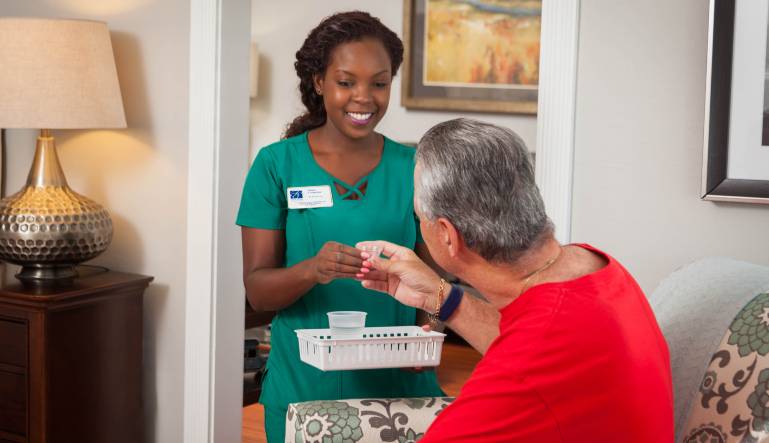Compare the best Assisted Living facilities in your area today.
Compare the best Assisted Living facilities in your area today.
Blog Article
Just How Aided Living Facilities Enhance High Quality of Life for Those With Dementia
Assisted living centers play a critical function in enhancing the high quality of life for people with dementia by carrying out tailored treatment methods that cater to their unique needs. These atmospheres combine organized tasks with emotional assistance, fostering a sense of area while guaranteeing safety and security and independence. The assimilation of engaging programs and household participation further enhances the homeowners' experience. The complexities of dementia care proceed to develop, prompting a closer assessment of exactly how these centers adjust and introduce to fulfill the obstacles dealt with by residents and their families. What ramifications does this have for future treatment versions?
Personalized Care Program
(Memory Care Facilities Charlotte)Oftentimes, people with dementia require tailored support that addresses their unique requirements and preferences. Customized care plans are necessary in assisted living setups, as they make sure that each resident obtains ideal focus and solutions. These strategies are created collaboratively, entailing medical care specialists, caretakers, and member of the family to produce an extensive summary of the individual's clinical background, cognitive abilities, and personal interests.
A well-structured personalized care plan usually includes details objectives connected to health and wellness monitoring, day-to-day activities, and social engagement. It represents the individual's cognitive decrease while promoting self-reliance and dignity. Routine evaluations and updates to the care strategy are essential, as they permit for alterations based on the homeowner's advancing condition and preferences.
Key components of these strategies commonly include medication management, behavior support strategies, and dietary standards tailored to the person's requirements (Assisted Living). By focusing on customized treatment, helped living facilities can cultivate a helpful environment that boosts the lifestyle for individuals with mental deterioration, inevitably adding to their total wellness and happiness. This customized method values the originality of each resident, guaranteeing they receive the thoughtful care they call for

Engaging Activities and Programs
Involving homeowners in purposeful activities and programs is vital for improving the quality of life for individuals with dementia. These tasks not only give enjoyment yet likewise boost cognitive feature and advertise social interaction, which can mitigate sensations of seclusion typically experienced by residents.

Furthermore, individualized programs are essential in making certain that each local's distinct preferences and capabilities are acknowledged. This tailored strategy encourages participation, enhances self-confidence, and offers a feeling of achievement.
Additionally, regular assessments of homeowners' interests can aid team change and adapt tasks to much better fit progressing requirements. By prioritizing engaging activities and programs, aided living centers can dramatically boost the overall experience and psychological wellness of people dealing with dementia.
Safe and Encouraging Setting
Producing a safe and encouraging atmosphere is vital for individuals with mental deterioration, as it straight impacts their well-being and top quality of life. Helped living facilities are made with certain features that advertise security while fostering a complacency and comfort. These settings prioritize accessibility, with formats that reduce complication and motivate freedom, enabling residents to browse their surroundings a lot more easily.
Precaution, such as secure entries and exits, prevent wandering and unapproved access, which are important considerations for people with mental deterioration (Assisted Living). Team members are educated to recognize the special needs of locals, providing tailored assistance and supervision to guarantee their security. The consolidation of relaxing shades and familiar items can aid decrease anxiousness and disorientation, creating a more soothing ambience.
Along with physical security, psychological support is extremely important. Facilities frequently use team who are not only skilled in caregiving however likewise educated in empathy and interaction, cultivating trust and connection with citizens. This holistic method adds to a caring setting where people really feel valued and understood, ultimately enhancing their general lifestyle.
Social Interaction and Neighborhood
A helpful setting not just focuses on safety and security yet likewise promotes chances for social communication and neighborhood interaction, which are crucial for people with dementia. In assisted living facilities, check these guys out structured activities and communal spaces encourage residents to connect with each other, reducing feelings of seclusion often experienced by those with cognitive impairments.
Social communication plays a substantial duty in improving emotional wellness and cognitive function (Memory Care). Involving with peers in group activities such as video games, arts and crafts, or workout not just promotes cognitive abilities however additionally nurtures a feeling of belonging. Facilities typically arrange occasions that promote socialization, allowing locals to construct partnerships and share experiences, which can be specifically useful for those with dementia
Moreover, a vivid neighborhood atmosphere can improve the total high quality of life for homeowners. Personnel participants are trained to assist in interactions and support homeowners in forming purposeful connections.
Household Participation and Support
Household participation is important in sustaining individuals with dementia in assisted living settings. Proactively engaging household participants not only gives emotional convenience to homeowners but likewise cultivates a sense of belonging and continuity in their lives. When family members take part in care preparation and daily tasks, they contribute valuable insights concerning the person's preferences, history, and needs, which can boost personalized care.
Additionally, normal family members gos to can dramatically enhance the psychological health of residents, decreasing sensations of seclusion and stress and anxiety. Relative can additionally assist in maintaining cognitive function by engaging their loved ones in familiar conversations and activities. This interaction strengthens personal identity and assists citizens really feel valued and comprehended.

Final Thought
In conclusion, assisted living centers substantially improve the top quality of life for people with dementia with customized treatment plans, involving activities, and a risk-free setting. Collectively, these variables create an all natural technique to care that addresses the special needs of individuals with dementia, promoting overall well-being and self-respect.
Report this page